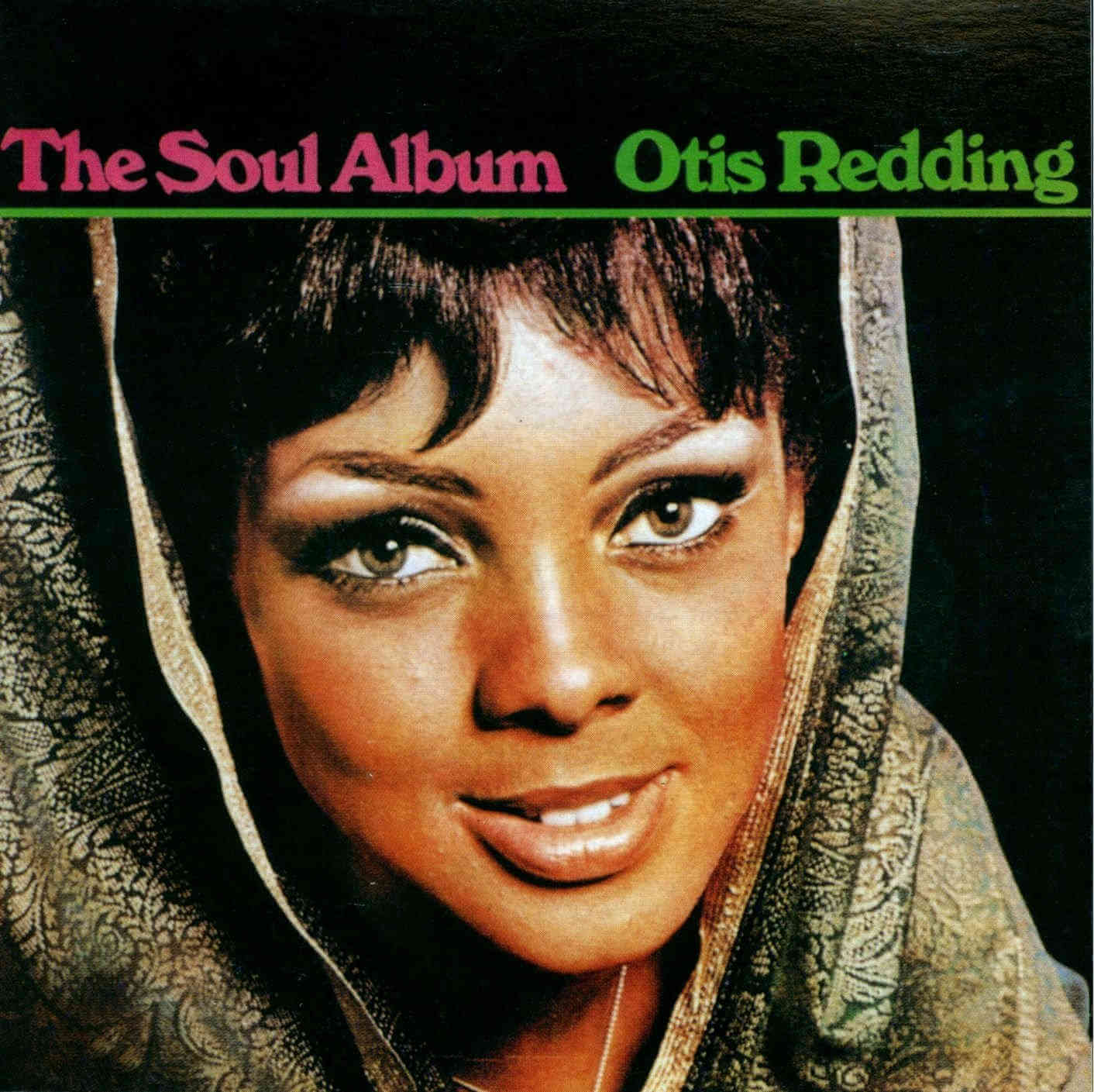
If the following is true:
- “Pain In My Heart“ was Otis Redding’s first solo album
- “The Great Otis Redding Sings Soul Ballads” was his first ‘Otis Redding’ album
- “Otis Blue: Otis Redding Sings Soul” was his first Stax soul album
Then, by pattern, “The Soul Album” should be a first of some kind for Redding. To me, this isn’t the case.
To me, Otis Redding’s “The Soul Album” is the second half of his first Stax soul album, “Otis Blue,” and that ain’t a bad thing. It’s 33 minutes filled with hidden gems ahead of their time (“Cigarettes and Coffee”), Staxed-up covers done better than the original artists (Sorry, Sam), and the unmistakable Otis Redding & Stax vibe that’ll have you strutting along with him wherever you are.
I played “The Soul Album” for two months before soft reviewing it. I took it up and down California and Oregon, morning and night. I took it with me out drinking in Silicon Valley and walking abandoned train tracks along the Oregon Coast. I took it with me to the gym. I took it writing and I took it marketing. It went everywhere with me. No matter where I took it, it took me to Soulsville each and every time I played it.
If an over-50-years-old album can do that to you, it’s probably “timeless.” If that don’t endear the album to the definition of “timeless,” nothing will, and the definers suck.
Let’s begin:
Album Details
Album Specs
- Released: April 1, 1966
- Where Recorded: Stax Records. Memphis, TN
- Record Labels: Volt (Stax) / Alco (Atlantic) / Rhino (current. By Time / Warner – manufactured and marketed)
- Produced by: Booker T. & the MG’s, Jim Stewart, Isaac Hayes (pre-Shaft), David Porter
- Album Peak Chart: #54 on Billboard 200.
- Notable Musicians (to me) Included: Donald “Duck” Dunn, Isaac “Shaft” Hayes, Steve Cropper
- Notable Reviews: AllMusic: 4/5 stars. Rolling Stone: N/A. The Rolling Stone Album Guide: N/A
- Top Single: “Just One More Day,” Billboard R&B #15 – Pop chart #85
Song Listings
Side One
- “Just One More Day” : Written by Otis Redding, Steve Cropper, & McElvoy Robinson
- “It’s Growing”: Written by Smokey Robinson & Warren “Pete” Moore
- “Cigarettes and Coffee” : Written by Jerry Butler, Eddie Thomas, and Jay Walker
- “Chain Gange” : Written by Sam Cooke
- “Nobody Knows You When You’re Down and out” : Written by James Cox
Side Two
- “Good to Me” : Written by Otis Redding & Julius Green
- “Scratch My Back”: Written by James Moore
- “Treat Her Right” : Written by Roy Head & Gene Kurtz
- “Everybody Makes a Mistake” : Written by Eddie Floyd & Alvertis Isbell
- “Any Ole Way” : Written by Otis Redding & Steve Cropper
- “634-5789 (Soulsville, U.S.A.)” : Written by Steve Cropper & Eddie Floyd
On Spotify
Each Song (to me)Each Song (to me)
Side One:
“Just One More Day”
I sit here hopped up on my feelings for this album, then I get guilty by how I think this album starts. I like the song, but I don’t like the placement on the album. Seriously, leave the album on repeat and just go about your day so you forget where the album begins and ends, and “Just One More Day” blends in nicely to the rest album. But for album placement, it’s really an outspoken change-of-pace ballad.
I’m also not quite sure why this was the song that was released as the single. It’s not my favorite original, it’s not my favorite version of this song (check the live ones), and I don’t think it’s the best original on “The Soul Album.” To be a fly on the wall into the rooms where these decisions were made.
All that whining aside, “Just One More Day” is an emphatic, cathartic plea whose strength is found within the comforting horns that lets the main character down gently as he’s coming to terms, in spite of himself, that she’s not coming back, again.
“It’s Growing”
I don’t want to say it. I don’t want to do it to The Temptations or Smokey Robinson, but when the weakest part of a cover is (presumably) Steve Cropper’s guitar intro, then your song kicks seven kinds of ass.
The boys in Soulsville Staxed-up this song something incredible. They took the momentum up a notch and cleared the runway for Otis to take off. Less Motown strings, more room for Otis to sing. That’s really all you ever need in a song.
Also, I have serious respect for the way the horns-and-snare-led beat set the break and let the drums kick into a verse. Some pop producer would have cut that out – and that’s why I hate pop.
“Cigarettes and Coffee”
Sing it with me now,
“Best cover song of the album / best cover song of the album.”
I’m still not sure how this song has slipped through the cracks of time like it has. It should be played in heavy rotation on oldies stations. I mean, I didn’t start drinking coffee till lately and I’ve never touched a cigarette – and I wouldn’t recommend anyone start either – but, gatdamn, the way that song sets the scene: the lyrics, choice of slow-down music, the piano scatting in the background like a romantic Italian violin…If you haven’t dreamed of your night out ending like this…
“It’s early in the morning
About a quarter till three
I’m sittin’ here talkin’ with my baby
Over cigarettes and coffee, now
And to tell you that
Darling I’ve been so satisfied
Honey since I met you
Baby since I met you, ooh”
…then you’ve been existing more than living. Presumably.
Give me 16 minutes and 4 seconds. I have to go hear this a few more times.
16:04 later:
To be honest, I thought “Cigarettes and Coffee” was an Etta James song. I heard her version first. Then I thought this song had a long and storied pop culture history because it was just incredible. Imagine my surprise when I didn’t find one for it. I found folks like Jerry Garcia covered it, and the original by Al Braggs in 1961 is actually pretty incredible with some badass piano – though he goes early 1960s PC, only hoping to be with the girl, sitting there smoking cigarettes and drinking coffee:
“Chain Gang”
Sing it with me now,
“Best Otis Redding cover of a Sam Cooke song
Best Otis Redding of a Sam Cooke song.”
Sure, Otis does an incredible job on “Change Gonna Come,” and his cover of “Shake” is calorie-burning fun:
“If you ‘wanna really roll
‘Got(s) to do the thing with soul.”
But, man, I don’t know. And it’s harder to put it into words now when I go back and I hear his other covers of Sam Cooke songs because they, too, are that incredible, but I think with “Chain Gang,” I didn’t expect there was any way to spruce it up like he did. And, yet, Otis did.
I think it’s because I think Otis and crew Staxed up a song whose original seemed way too whitewashed to give justice to its topic. Not only that, that pause before the drums kick into the chorus kept me seat-dancing while driving back along the San Francisco Bay foothills on I-680 North late on a Saturday night.
“Nobody Knows You When You’re Down and Out”
I first heard it when Eric Clapton covered it on his iconic “Unplugged,” back in 1992-ish. I later heard it when I found his original (I think), when he was with Derek and the Dominos.
By the way, the slide on that Derek and the Dominos version was none other than Duane Allman. I think.
I’ve heard other verions of “Nobody Knows You…” over the years. Otis & Stax’s version ranks right up there with the best of them. Stax & Otis found their lane and just drove straight through these songs. Cropper and the horns really set the tone. The keys, as simple as Hayes played it in this cover, really gave it that smoky-haze feel – consoling your loneliness by reminding you that everyone else there that night felt that way, too, and that it’s okay. The result was this tangible, first-table-in-a-blues-club-after-hours sensation.
Side Two:
“Good to Me”
I really don’t get why they start albums with slow ballads. Maybe I’m thinking their “As” are where their “Bs” should be and vice-versa, but both this and “Just One More Day” seemed better slotted in the fourths spots in this album. That slow ballad before bringing the vibe back up to finish the sides.
Once again, play the album straight through on Spotify or something online, leave it on repeat, and you won’t notice the odd positioning.
“Good to Me” as a stand-alone song, to me, is an underrated gem. If I didn’t know better, I’d say it’s early in the morning, about a quarter to 3, and he’s sitting there with his baby talking over cigarettes and drinking coffee.
“Scratch My Back”
This might be the underrated gem of the album. I had never heard it before listening to this album. “Scratch My Back” is pure Stax grit, grime, and groove innuendo. Ain’t no mistakin’ it. Ain’t nothin’ wrong with it. I play this one over and over and over again without apologies.
“Scratch My Back” was a cover of the blues song, “Baby Scratch My Back,” written by James Moore and originally performed by Slim Harpo. Check it out:
“Treat Her Right”
This one sounds like the second part of a medley to “Scratch My Back.” It’s got that similar Stax grit, grime, and groove. In this part of the medley, he’s essentially telling those listening that to scratch backs like he was doing in the last song, you got to do what he’s telling you to do now.
“Everybody Makes a Mistake”
This is an almost-too autobiographical ballad written by Alvertis Isbell and Eddie Floyd.
“Wait. How do I know the name, ‘Eddie Floyd’?”
You’ll know the name if you know his #1 Soul hit, “Knock On Wood,” a song Otis will cover here in a couple albums along with Carla Thomas.
It’s Otis confessing to his woman while his Stax crew is peaking in through the window, hoping to see him reconcile with his woman.
“Any Ole Way”
Now, this is the kind of upbeat way to end an album or close down a bar at night. “Any Ole Way” is just another great Cropper & Redding collaboration. It’s simple, it’s sweet, and it gets you off your feet. Well placed horns in the chorus have you feeling more than thinking.
A sobering delight of a soft-step groove.
“634-5789 (Soulsville, U.S.A.)”
And for an encore, we have “634-5789.” It gets your ass moving, feet clapping, and sends you off feeling good. The horns do an incredible job as backup singers, and the tempo stays fluid and toe-tapping throughout.
It’s a song that reminds you that Soul is about sentiment moreso than sexuality, and sometimes that sentiment is simply to feel sensational.
Overall
I don’t get why the album didn’t do better on the charts as it did. Maybe they underpromoted it. Maybe the south in 1966 wasn’t the right time or place to push some of these subtle yet honest gems into a politically-correct-yet-explosive climate. I mean, why else would they leave “Cigarettes and Coffee,” on the shelf?
Or maybe they just wanted to make more money pushing an original composition. Who knows.
Well, Steve Cropper probably knows. Maybe I should tweet and ask him.
That said…
I knew when “Otis Blue” was coming up to be prepared for it. It’s the album where most critics thought Otis finally found himself.
But I didn’t see “The Soul Album” coming. It’s the jab that knocks you out after the haymaker called “Otis Blue” leaves you dizzy. It’s melodic, doesn’t try to sound like anything other than a Stax soul album, and leaves you wanting to go back and hear it again.
What do you think of “The Soul Album”?
Sources included:
- My occasionally accurate Otis Redding Discography
- OtisRedding.com
- Rhino.com
- Wikipedia
- Album liner notes and oldies radio




Leave a Reply
You must be logged in to post a comment.